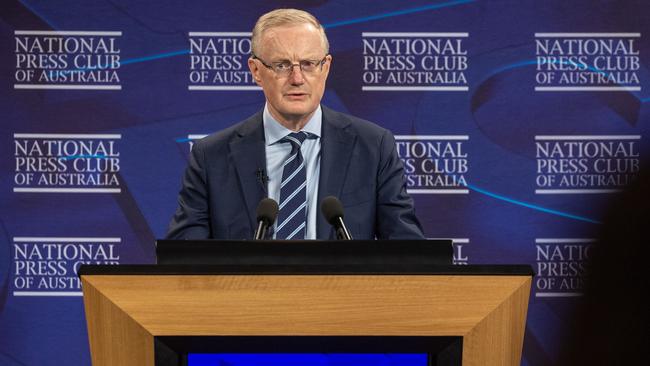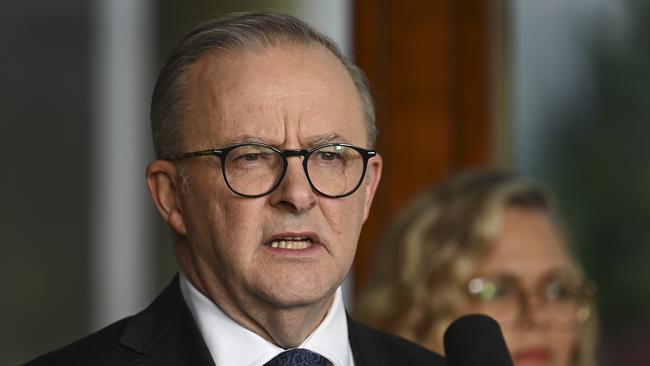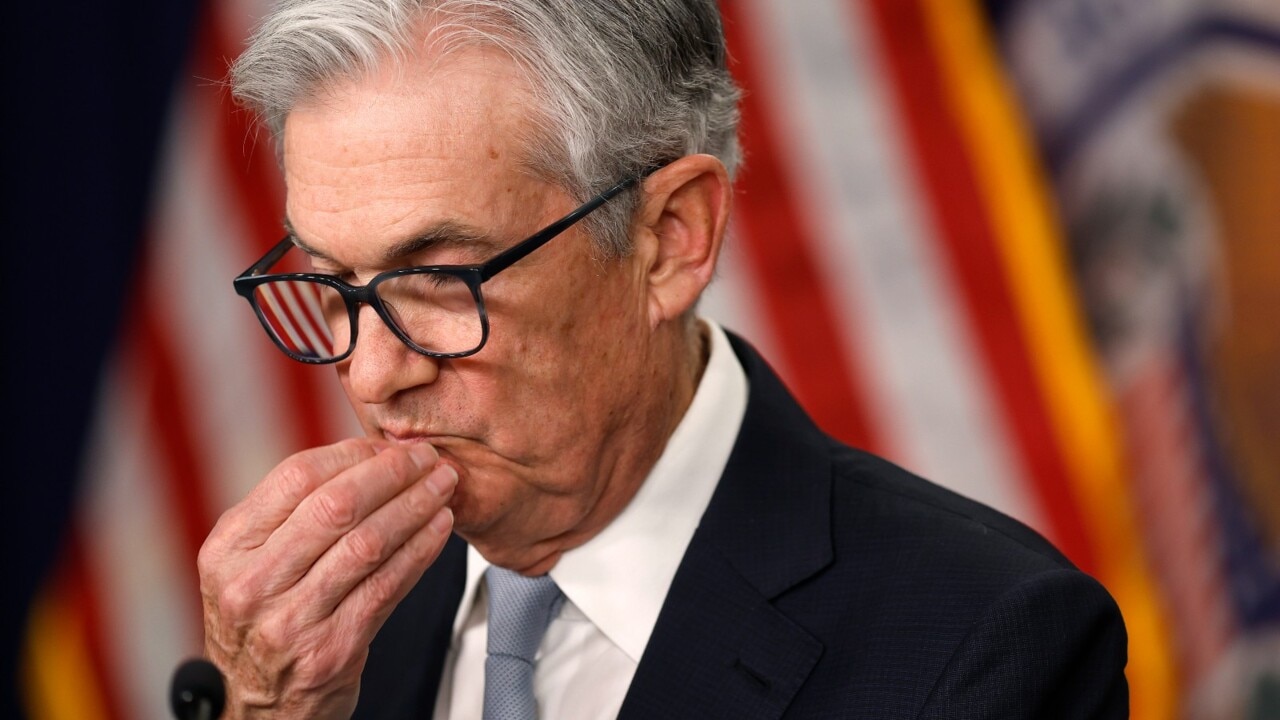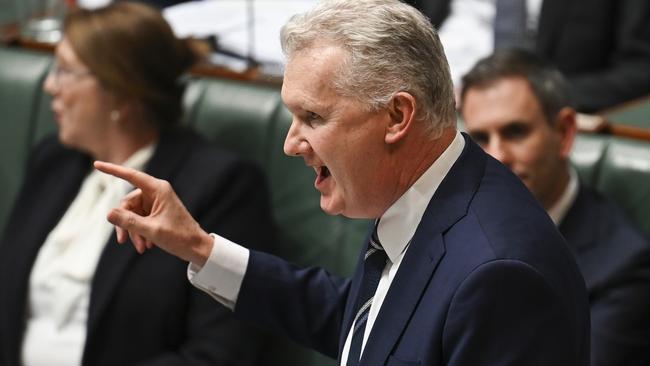
Those areas of the economy that are being battered, led by those under mortgage stress and retailers, are in danger of suffering greater pain than would otherwise be necessary to curb inflation.
And a possible outcome of the tussle is that the forecast a year ago by former Reserve Bank governor Ian Macfarlane that Australian might not be able to reduce inflation below 4 per cent may prove correct.
In the public arena the debate is obscured because Prime Minister Anthony Albanese, Treasurer Jim Chalmers and Employment minister Tony Burke have a “villain” to blame for the widespread mortgage stress and the collapse in wide areas of retail sales since Mother’s Day – Reserve Bank governor Philip Lowe.
And Lowe is a perfect target to conceal the differences between Reserve Bank aims and government policy.
There is no doubt Lowe made mistakes, but the intensity of the attacks by Albanese, Chalmers and Burke on the alleged sins of the Reserve Bank governor has few precedents.
The Reserve Bank is applying the brakes to the economy via higher interest rates at the same time as Albanese, Chalmers and Burke plus state governments have their foot on the accelerator.
That means that interest rates have had to rise higher than would otherwise be necessary and further rises are likely.
The alternative is that we face the “Macfarlane outcome”.
The brake/accelerator conflict helps explain what would otherwise be very strange responses to higher interest rates.

Last year the Commonwealth Bank could see the mortgage dangers ahead and said that if official interest rates rose above the 2.5-2.75 per cent range there would be a sharp contraction as a result of severe mortgage stress.
In November, the official rate rose to 2.85 per cent so we were in the CBA danger territory.
But it was not until six months later on May 31, 2023, when official rates had hit 3.85 per cent, that I was able to declare with confidence “The dam has burst. Suddenly, in the last two weeks, large areas of the retail trade have turned down sharply”.
Retailers around the land are now confirming that commentary.
But it is not just the delay in the retail sales fall that surprised.
Banks were expecting house prices to fall by 15 to 20 per cent and instead they are now rising.
Unemployment was expected to jump but it is falling, and so on.
In this context, not surprisingly, inflation remains very sticky at around 6 per cent.
The reasons for this paradox are not hard to find.
While higher interest rates and tighter bank credit stopped new home loans, state governments’ infrastructure spending keep momentum in the building industry and contributed to building costs remaining high.
House prices are rising partly because the cost of building a new dwelling is greater than the “bricks and mortar” in an existing house.
The influx of migrants and students is lifting accommodation demand, pushing up prices and rents.

The biggest government policy force driving inflation is arguably Burke, who pressed Fair Work to lift wages sharply and raise expectations - exactly what Lowe did not want to happen. Burke’s industrial relations legislation lowers productivity.
The massive federal and state government spending programs employ people which allows employment to remain high despite the rate rises.
Chalmers has reduced confidence in superannuation so many older people are extracting superannuation money and investing in a larger domestic dwelling on the basis that the most tax effective investment is your own house.
Lowe is a traditional central banker and is well aware the government’s “accelerator” is forcing his interest rates higher than would otherwise be necessary.
Fascinatingly, the brief for the proposed restructured Reserve Bank requires it to consider both inflation and unemployment.

The designers of those recommendations did not take into account a simultaneous accelerator/brake conflict between government and the central bank that contributes to low unemployment and high inflation despite higher interest rates.
Accordingly there is no certainty that a restructured Reserve Bank would change the Lowe policy.
Reserve Banks minutes reflect a steely determination to apply the brake hard even though their governor, Lowe, will be unfairly blamed as a sole cause of the mortgage stress.
“The board affirmed that its priority is to return inflation to target within a reasonable time frame. The recent data suggested that inflation risks had shifted somewhat to the upside… sustained high inflation would lead to even higher interest rates in the future and a worse outlook for the labour market… members reaffirmed their determination to return inflation to target and their willingness to do what is necessary to achieve that”, it declared.
Lowe, as a central banker, believes with a passion that despite the personal criticism from the government he is acting in the national interest.








Australia finds itself with the government and the Reserve Bank pulling in different directions.